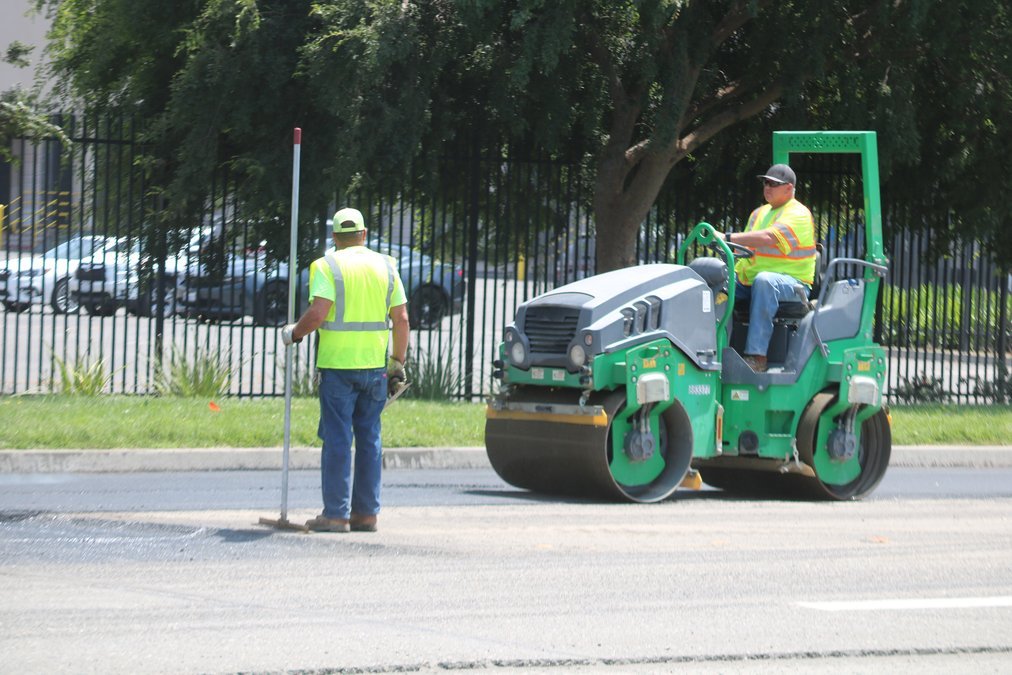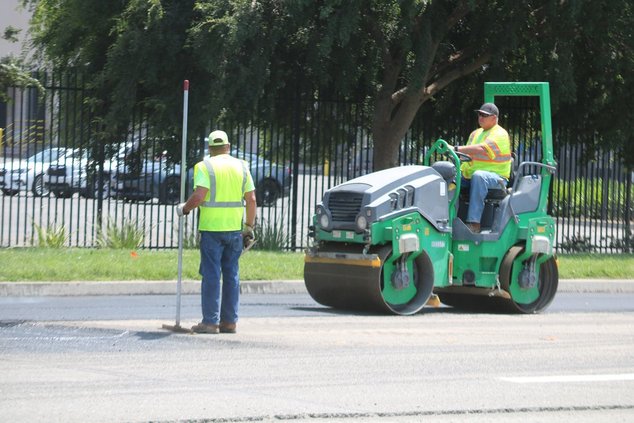Manteca — like a growing number of California cities — is facing a rough road when it comes to future funding of day-to-day street maintenance.
The gas tax paid at the pump that pays for local road work will flatline sometime in 2025.
It is occurring even with a 2 cent increase set for July 1 when the California gas tax is being adjusted upward to 60 cents.
That’s because electric vehicle sales now account for 26.7 percent of all new vehicle sales in California.
EV owners do not pay gas taxes that pay for road upkeep and highway construction projects.
At the same time, electric vehicles size-for-size weigh more than gas vehicles due to the significant weight of battery pack. That means they contribute to pavement deterioration at a faster pace than similar sized gas-powered vehicles that are taxed via gas purchases to pay for upkeep work.
And that is on top of new gas powered vehicles become more fuel efficient with each passing year which in turn reduces tax revenue.
That’s part of the bad news delivered Tuesday by Finance Director Shay Narayan before the City Council adopted a $73.8 million general fund budget for the fiscal year starting July 1.
The city receives roughly $5 million annually from state gas tax collections.
It is divided roughly 50-50 between major road work projects and the cost of operating day-to-day street maintenance.
Manteca, in the fiscal year ending June 30, will have spent $1,796,219 in salaries and benefits for street crews and $1,088,308 in operational costs.
That is against $2,346,109 in revenue. The shortfall is currently being covered by a $1.4 million fund balance.
The state gas tax receipts for the city will increase to $2,435,457 next year against $3,579,688 in expenses.
Then starting in the first half of 2025, the fund balance will be depleted and gas tax receipts are projected to basically flatline for the next four years at $2.3 million.
Meanwhile, minimum operating expenses will be at $3.3 million.
To cover the shortfall that starts out at $662,871 in the 2025-2026 fiscal year and ballons to a deficit of $3,517,120 in the 20280-2029 fiscal year, Manteca well need to cannibalize money — if they can.
The most likely sources is from the other 50 percent of the gas tax that helps pay for projects such as the residential street pavement upgrading project that tries to address sections of the city each year or cutback other general fund services.
Councilman Charlie Halford astutely noted the drop off is occurring because the California Legislature failed to rethink how road maintenance and highway construction work will be funded after they elected to mandate the end to new fossil fuel powered vehicle sales starting in 2035.
To contact Dennis Wyatt, email dwyatt@mantecabulletin.com






